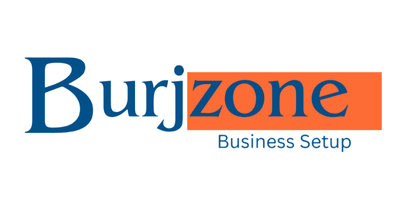Our Blog
Home / Blog
How Cultural Diversity Affects Project Teams in the UAE
The United Arab Emirates is home to one of the most culturally diverse workforces in the world. From Dubai’s international free zones to Abu Dhabi’s government-backed industries and Sharjah’s growing creative economy, teams often comprise professionals from Asia, Europe, the Middle East, Africa, and North America. This multicultural environment creates unique opportunities—and distinct challenges—for project management across sectors.
Understanding how cultural diversity affects project performance is crucial for businesses aiming to deliver successful outcomes in the UAE. From communication styles to leadership expectations, cultural factors shape the way teams operate and collaborate.
1. The Multinational Nature of UAE Project Teams
With over 200 nationalities living and working in the UAE, project teams frequently reflect this diversity. A construction project in Dubai Marina, for example, may include Emirati managers, Indian engineers, Filipino supervisors, and European architects. Similarly, a marketing project in Sharjah Media City (Shams) could involve creatives from Egypt, developers from Pakistan, and account managers from the UK.
Each member brings distinct experiences, work ethics, and cultural expectations—creating a rich, but complex, project dynamic.
2. Communication Styles Vary Significantly
In cross-cultural teams, miscommunication is a common challenge. For instance:
Direct vs. Indirect Communication: Western team members may value blunt, clear messaging, while Asian or Arab professionals might use more nuanced or diplomatic language.
Language Nuances: Even though English is the business language, differing fluency levels and accents can lead to misunderstandings.
Non-Verbal Cues: Body language, gestures, and even silence may have different interpretations based on cultural backgrounds.
Using clear documentation, structured meetings, and follow-up summaries can help bridge these gaps.
3. Different Approaches to Hierarchy and Decision-Making
Cultural perceptions of hierarchy can influence decision-making speed and effectiveness. In some cultures, team members wait for top-down instructions, while in others, individuals expect more autonomy and participation.
For example, a German team member might prefer a structured project plan with precise timelines, whereas a team member from a more flexible cultural background may adapt tasks as they progress. Understanding and balancing these tendencies is crucial for maintaining momentum and harmony.
4. Time Orientation Impacts Project Delivery
In some cultures, punctuality and strict scheduling are paramount, while others take a more fluid approach to deadlines. For projects in Abu Dhabi government sectors, punctuality and compliance are often strictly enforced. However, in creative industries or freelance-based projects, such as those in Ajman Free Zone, a more flexible approach may be observed.
To avoid delays, project managers should define clear expectations around timing and build buffer periods into project timelines when managing multinational teams.
5. Cultural Impact on Conflict Resolution
How people approach disagreement also varies culturally. Some team members may openly express dissatisfaction, while others may avoid conflict to maintain group harmony.
To manage this effectively:
Set ground rules for discussions
Encourage respectful, open feedback
Offer multiple channels for concerns (1-on-1 check-ins, anonymous suggestions, etc.)
Foster a safe, inclusive team environment
6. Leadership Style Preferences
In the UAE, where local laws and traditions coexist with international business models, leadership flexibility is essential. A leadership style that works in a US-headquartered firm may not work in a diverse team in Dubai Internet City.
Some teams respond best to collaborative, consensus-driven leaders, while others expect authority and direction. Leaders must be culturally sensitive and adaptable.
7. Strategies for Managing Culturally Diverse Project Teams
Successful UAE-based businesses often apply these strategies:
Cultural awareness training during onboarding
Regular team-building activities to foster trust
Inclusive language and avoidance of slang or idioms in project documents
Clear escalation protocols for misunderstandings
Celebrating team diversity through shared experiences or recognition
Final Thoughts
Cultural diversity is a strength for project teams in the UAE—but only when managed with awareness and intentional strategy. Businesses that understand and embrace cultural nuances are more likely to deliver high-performing, cohesive teams that drive success across Dubai, Abu Dhabi, Sharjah, and beyond.
#CulturalDiversityUAE #UAEProjectManagement #MultinationalTeamsDubai #SharjahTeamCulture #AbuDhabiWorkforce #InterculturalLeadershipUAE #GlobalTeamsMiddleEast #CrossCulturalCommunicationUAE #DubaiTeamManagement
